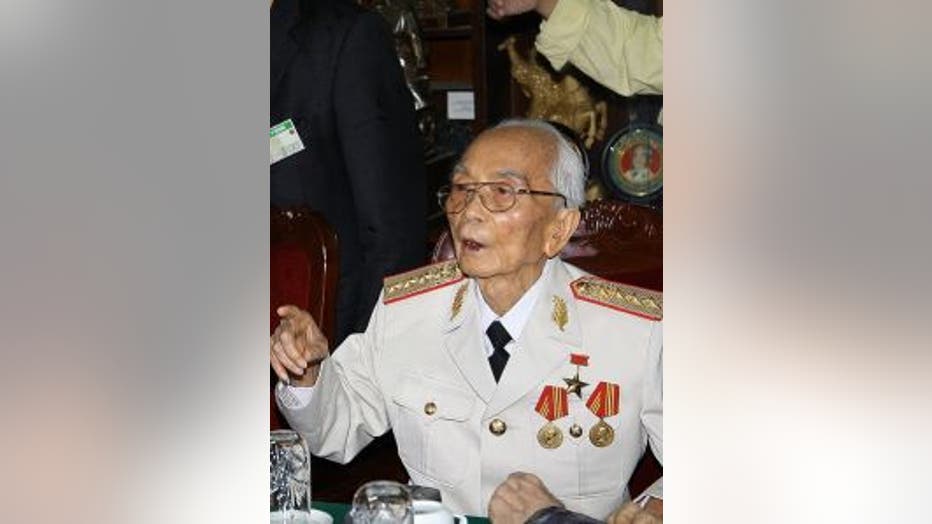Vietnamese general that led North to victory dies at 102
HO CHI MINH CITY -- Vo Nguyen Giap, the communist general widely regarded as one of the military geniuses of the 20th century, who masterminded the defeat of the French and then the Americans in Vietnam, has died. He was 102.
Giap died Friday at a military hospital in Hanoi, the Associated Press reported, citing a government official.
Though Ho Chi Minh was the symbol of Vietnam's fight for independence and reunification, it was Giap who carved out the victories. From Dien Bien Phu to Khe Sanh to the Tet offensive, his name became synonymous with the battles that defined a chapter of world history and emboldened liberation movements from Africa to Latin America.
A man of little pretense and great ambition, Giap had no formal military training and used to joke that he was a self-taught general. His early nationalistic calling was as a writer and propagandist. Never having touched a gun, he protested when Ho ordered him to prepare for a war with France: "I wield a pen, not a sword."

But he followed orders, and on Christmas Eve 1944 he and a band of 33 partisans armed with knives and flintlock rifles attacked two isolated French outposts. Thirty years later, with the French gone and the U.S.-backed South Vietnamese forces now near collapse, his army was the world's third largest, numbering 800,000. Through three decades of war, he was his nation's supreme military commander, a service record with few, if any, parallels in modern times.
Giap understood what the French and Americans did not: that a peasant army, imbued with patience, nationalism and a willingness to endure untold suffering, could defeat a far more powerful force whose cause was not enthusiastically supported at home. Giap lost an estimated 1 million Communist soldiers in winning Vietnam's independence as a unified state, but he never expressed the slightest doubt that such huge casualties were worth the sacrifice.
"Every minute, hundreds of thousands of people die on this Earth," Giap said in 1969, adding that he was prepared to fight as long as necessary for ultimate victory. "The life or death of a hundred, a thousand, tens of thousands of human beings, even our compatriots, means little."

